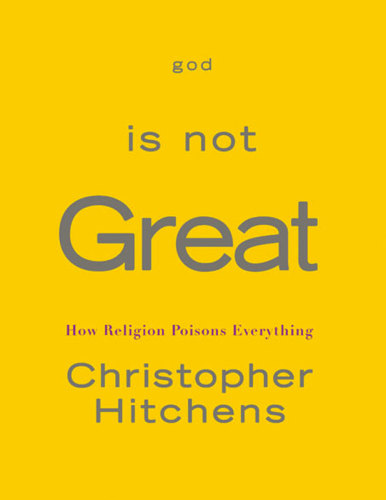
God Is Not Great
How Religion Poisons Everything
کتاب های مرتبط
- اطلاعات
- نقد و بررسی
- دیدگاه کاربران
نقد و بررسی

March 12, 2007
Hitchens, one of our great political pugilists, delivers the best of the recent rash of atheist manifestos. The same contrarian spirit that makes him delightful reading as a political commentator, even (or especially) when he's completely wrong, makes him an entertaining huckster prosecutor once he has God placed in the dock. And can he turn a phrase!: "monotheistic religion is a plagiarism of a plagiarism of a hearsay of a hearsay, of an illusion of an illusion, extending all the way back to a fabrication of a few nonevents." Hitchens's one-liners bear the marks of considerable sparring practice with believers. Yet few believers will recognize themselves as Hitchens associates all of them for all time with the worst of history's theocratic and inquisitional moments. All the same, this is salutary reading as a means of culling believers' weaker arguments: that faith offers comfort (false comfort is none at all), or has provided a historical hedge against fascism (it mostly hasn't), or that "Eastern" religions are better (nope). The book's real strength is Hitchens's on-the-ground glimpses of religion's worst face in various war zones and isolated despotic regimes. But its weakness is its almost fanatical insistence that religion poisons "everything," which tips over into barely disguised misanthropy.

April 15, 2007
In November 2006, "Wired" magazine published an article called "The Church of the Non-Believers," which profiled the new atheism movement along with its proponents: the formidable Richard Dawkins, Sam Harris, and Daniel Dennett. Missing from this erudite lineup was the learned Hitchens, journalist and contributing editor to "Vanity Fair". Fortunately, Hitchens disseminates his views here, cataloging the major arguments against religion, which he deems a pernicious force. First, he writes, faith misrepresents the origin of the cosmos as well as that of humanity; second, it fosters servility, solipsism, and sexual repression; and, third, it is based on wishful thinking. Hitchens spares no targets in this manifesto, criticizing both Western and Eastern faiths. Ultimately, he calls for a "New Enlightenment" and the pursuit of "unfettered scientific inquiry." This provocative, challenging, and passionate worka religious believer's and apologist's nightmareis recommended without reservation for public and academic libraries.C. Brian Smith, Arlington Heights Memorial Lib., IL
Copyright 2007 Library Journal, LLC Used with permission.

Starred review from April 1, 2007
God is getting bad press lately. Sam Harris The End of Faith (2005) and Richard Dawkins The God Delusion (2006) have questioned the existence of any spiritual being and met with enormous success. Now, noted, often acerbic journalist Hitchens enters the fray. As his subtitle indicates, his premise is simple. Not only does religion poison everything, which he argues by explaining several ways in which religion is immoral, but the world would be better off without religion. Replace religious faith with inquiry, open-mindedness, and the pursuit of ideas, he exhorts. Closely reading major religious texts, Hitchens points to numerous examples of atrocities and mayhem in them. Religious faith, he asserts, is both result and cause of dangerous sexual repression. Whats more, it is grounded in nothing more than wish fulfillment. Hence, he believes that religion is man-made, and an ethical life can be lived without its stamp of approval. With such chapter titles as Religion Kills and Is Religion Child Abuse? Hitchens intends to provoke, but he is not mean-spirited and humorless. Indeed, he is effortlessly witty and entertaining as well as utterly rational. Believers will be disturbed and may even charge him with blasphemy (he questions not only the virgin birth but the very existence of Jesus), and he may not change many minds, but he offers the open-minded plenty to think about.(Reprinted with permission of Booklist, copyright 2007, American Library Association.)

























دیدگاه کاربران